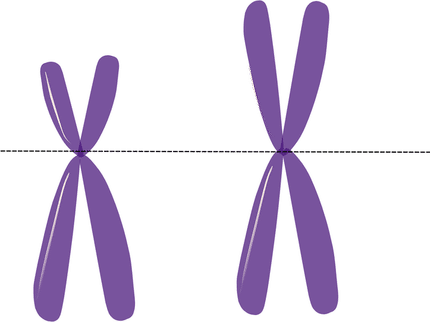More than just a kinase: CDK6 in cancer
Advertisement
cancer in humans is frequently associated with unusually high amounts of one or more proteins responsible for controlling the rate at which cells divide. As an example, excessive amounts of the cyclin-dependent kinase CDK6 are often found in types of cancer such as lymphoma. Together with a number of collaborators within Vienna and beyond, Karoline Kollmann of the University of Veterinary Medicine, Vienna (Vetmeduni) has now shown that CDK6 is part of a multiprotein complex that stimulates the production of one of the so-called INK4 family members (confusingly termed p16INK4a), which suppresses tumour growth. In other words, the cell has an inbuilt mechanism to help it cope with excessive amounts of CDK6.
The problems really start when p16INK4a is missing, as is frequently the case in lymphomas or leukaemias. Now the high levels of CDK6 are unchecked and so can lead directly to a stimulation of cell division. Furthermore, Kollmann and her colleagues showed that another CDK6-containing complex can also promote the production of an additional factor, known as VEGF-A, that increases the growth of blood vessels and thus ensures that the cells in the growing tumours are supplied with sufficient energy and oxygen to multiply. CDK6 is the first factor to be shown to be involved in regulating tumour growth while simultaneously helping to supply tumours with blood.
As its name implies, CDK6 is a kinase, i.e. it adds phosphate groups to other proteins and thereby alters their activity. In a further twist to the tail, the Vetmeduni scientists have shown that CDK6 can still exert its effects on p16INK4a and VEGF-A when it lacks its kinase activity: a mutant form of the CDK6 protein with the kinase function inactivated retains the ability to regulate expression of the p16INK4a and VEGF-A genes.
Veronika Sexl, Head of the Vetmeduni's Institute of Pharmacology and Toxicology, where the work was performed, notes the medical importance of her group's findings. "Because it is known to be involved in so many cancers, CDK6 represents a promising target for anti-cancer therapy and lots of labs are trying to design specific inhibitors. But their efforts are focused on inhibiting CDK6's kinase function. We have shown that CDK6 has an additional, kinase-independent mode of action that is responsible for the uncontrolled cell growth and increased production of blood vessels that are a hallmark of cancer. CDK6 inhibitors will also need to block this new function if they are to be effective in treating cancer."
Original publication
Karoline Kollmann, Gerwin Heller, Christine Schneckenleithner, et al., „A new kinase-independent function of CDK6 links the cell cycle to tumor angiogenesis“, Cancer Cell, 2013


















































